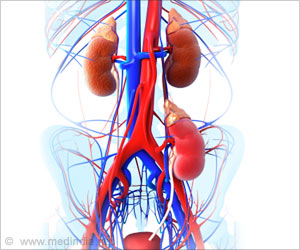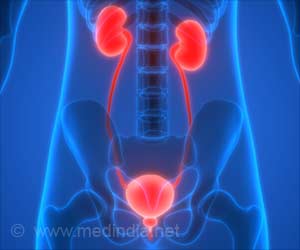Kidney transplant recipients tend to mount impaired antibody responses against emerging Covid-19 variants despite two-dose COVID-19 vaccination.

‘Kidney transplant recipients do not show strong neutralizing antibody responses to beta (B.1.351) and delta (B.1.617.2) variants following standard COVID-19 vaccination.’





Because kidney transplant recipients are at high risk for SARS-CoV-2 infection and more severe COVID-19 disease, SARS-CoV-2 vaccination is strongly recommended in these patients. Studies indicate that kidney transplant recipients mount lower antibody responses following SARS-CoV-2 vaccination compared with healthy individuals, however. As most of these studies were performed when SARS-CoV-2 wildtype and B.1.1.7 (alpha) strains were the predominant variants, it’s unclear whether the findings translate to the current situation with the emerging variants of concern B.1.351 (beta) and B.1.617.2 (delta).
To investigate, a team led by Claudius Speer, MD (Heidelberg University Hospital, in Germany) conducted a prospective two-center study of 173 kidney transplant recipients and 166 healthy controls with different SARS-CoV-2 vaccination schedules between December 2020 and June 2021.
Following vaccination, fewer kidney transplant recipients developed neutralizing antibodies against SARS-CoV-2 than healthy controls.
After the second vaccine dose, anti-S1, anti-receptor-binding domain, and surrogate neutralizing antibodies—all different types of antibodies against various aspects of SARS-CoV-2—were detectable in 30%, 27%, and 24% of kidney transplant recipients, respectively. This compared with 100%, 96%, and 100% in healthy controls.
Advertisement
“We discovered that a large proportion of kidney transplant recipients is not adequately protected against the emerging variants B.1.351 (beta) and B.1.617.2 (delta) with the standard vaccination regimens currently used in the healthy general population,” said Dr. Speer.
Advertisement
An accompanying editorial notes that additional strategies beyond booster shots are needed to protect kidney transplant recipients who do not respond to the standard 2-dose vaccine regimen.
“In the absence of seroconversion, the use of anti SARS-CoV-2 monoclonal antibodies might be the solution to protect this fragile population against the emergence of variants of concern,” the authors wrote.
An accompanying Patient Voice editorial provides the perspective of a patient who has been living with a kidney transplant for 25 years.
Study authors include Louise Benning, MD, Christian Morath, MD, Marie Bartenschlager, Christian Nusshag, MD, Florian Kälble, MD, Mirabel Buylaert, MD, Matthias Schaier, MD, Jörg Beimler, MD, Katrin Klein, MD, Julia Grenz, Paula Reichel, MD, Asa Hidmark, PhD, Gerald Ponath, PhD, Maximilian Töllner, Marvin Reineke, Susanne Rieger, MD, Burkhard Tönshoff, MD, Paul Schnitzler, PhD, Martin Zeier, MD, Caner Süsal, MD, Ralf Bartenschlager, MD, and Claudius Speer, MD.
Disclosures: Funding for this study has been received by the “Dietmar Hopp Stiftung” with the grant number 1DH2111111. The authors have no financial disclosures.
Source-Eurekalert















